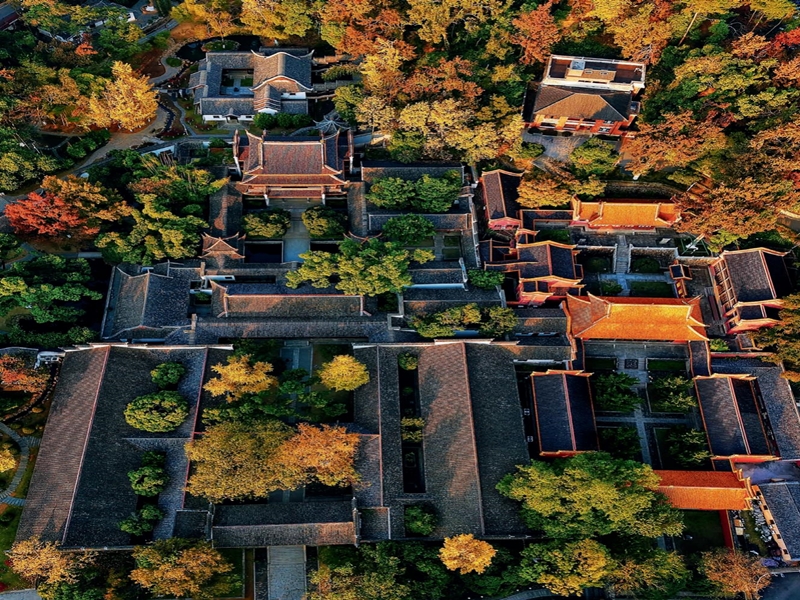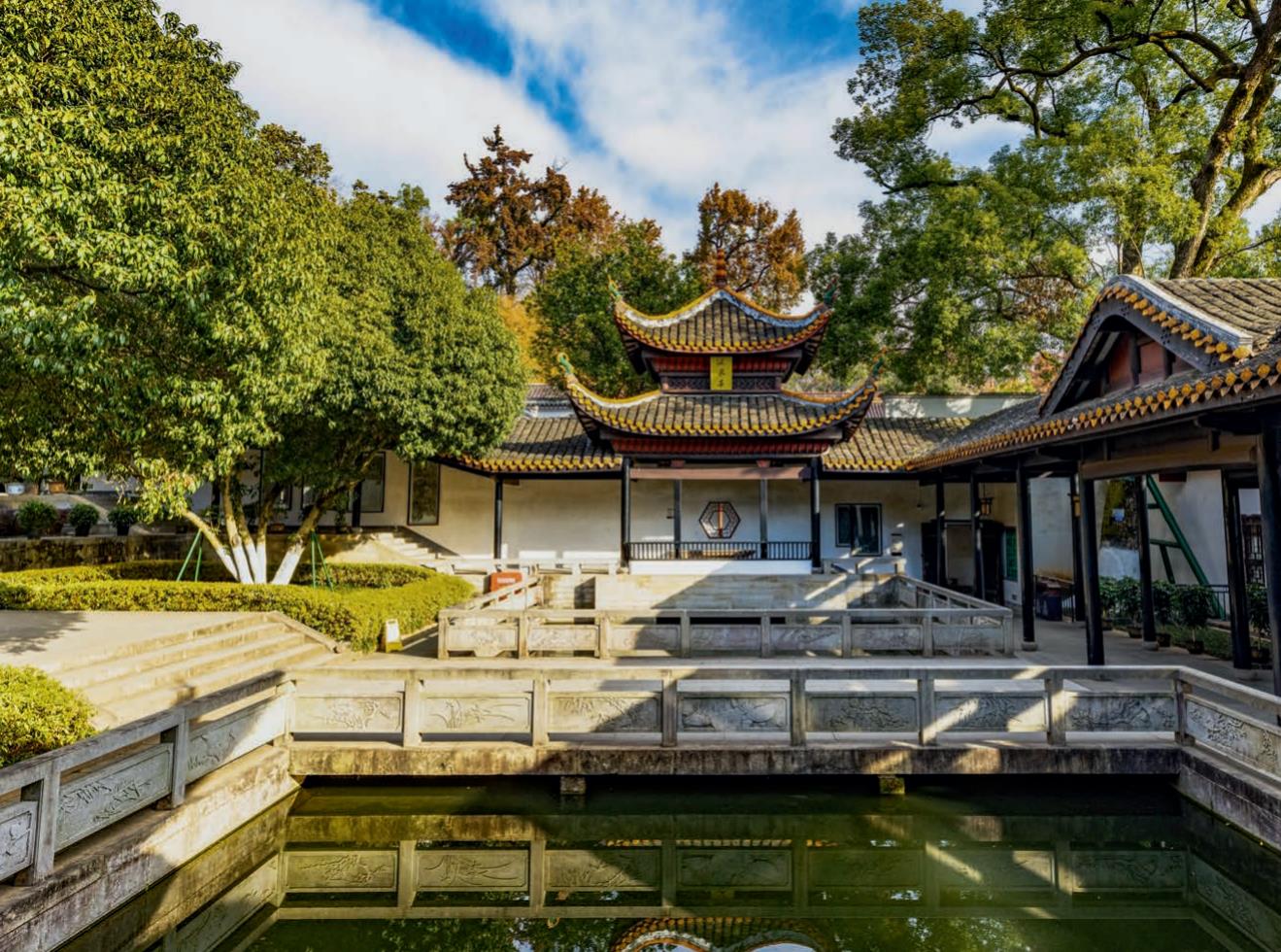Yuelu Academy Timeless Learning

From an ancient academy to part of today’s Hunan University, Yuelu Academy has contributed to cultural heritance for centuries and witnessed the evolution and modernization of ancient Chinese education and culture.
Nestled at the foot of Yuelu Mountain in Changsha, central China’s Hunan Province, Yuelu Academy is an ancient institution of learning with a rich history. Even in winter, the academy remains packed with numerous visitors from around the world as one of the most popular tourist attractions in Changsha.
Yuelu Academy was founded in 976 during the Northern Song Dynasty (960-1127), with a history of more than 1,000 years. From an ancient academy to part of today’s Hunan University, it has contributed to cultural heritance for centuries and witnessed the evolution and modernization of ancient Chinese education and culture.
The largest and best-preserved ancient educational building complex in China, Yuelu Academy consists of several courtyards with a symmetrical layout. Entering via its front gate and then passing another two gates along the central axis provides access to a courtyard surrounded by structures such as the Residence of Half-Learning and the Lecture Hall.
In the middle of the courtyard lined by skyscraping trees is the Lecture Hall, the primary teaching venue of the academy. Embraced by walls in three directions, the hall has no door. A one-meter-tall platform is situated at the heart of the hall, with two armchairs on it.
According to Xiao Yongming, president of Yuelu Academy, the two armchairs honor Zhu Xi (1130- 1200) and Zhang Shi (1133-1180), both renowned Confucian masters who once served as the head of the academy. In 1167, the two masters delivered lectures together at the academy for two months, attracting throngs of audiences. Xiao noted that the joint lectures by Zhu Xi and Zhang Shi exerted far-reaching influence on the development of the Huxiang School of Learning, marking the beginning of its transcendence of geographical limits and gradual merging with mainstream Confucianism.

Later, as the “base camp” of the Huxiang School of Learning, Yuelu Academy nurtured numerous celebrated figures who left marks on history including Zeng Guofan (1811-1872), a politician and military leader of the Qing Dynasty (1644-1911), and Yang Changji (1871- 1920), a renowned educator. Mao Zedong (1893-1976) once studied under Yang at Yuelu Academy as a guest student. All of this expanded the academy’s influence in society.
In addition to teaching, Yuelu Academy still functions as an institution for book collection and academic research. Now a college of Hunan University focusing on training talent in disciplines such as philosophy and history, it offers a complete higher education system covering bachelor’s, master’s, and doctoral degrees. Since its transformation into a modern college in the early 20th century, Yuelu Academy has perfectly integrated ancient and modern education systems and explored a set of unique teaching models, making it a successful example of modernization of ancient Chinese academies.
Following the tradition of joint lectures by Zhu Xi and Zhang Shi, Yuelu Academy attaches great importance to academic exchange. It is committed to global dissemination of traditional Chinese culture through organizing high-level domestic and international seminars and conducting exchange with universities and research institutes both at home and abroad. Today, Yuelu Academy is a world-renowned academic research and exchange hub.
In recent years, Yuelu Academy has adopted modern technologies to spread Huxiang culture and classical academy culture, released cultural products such as the “Yuelu Academy Audio Stories” series and the documentary Yuelu Academy, and introduced an intelligent tour guide system to share information about the academy more conveniently and vividly. “In ancient times, academies were spiritual homes for the literati,” said Xiao Yongming. “Alongside the revival of traditional Chinese culture over the past two decades, classical academies have regained life after many ups and downs. We’ll continue activating the profound cultural heritage of Yuelu Academy and showcasing the value and appeal of Huxiang culture and classical academy culture to the world.”